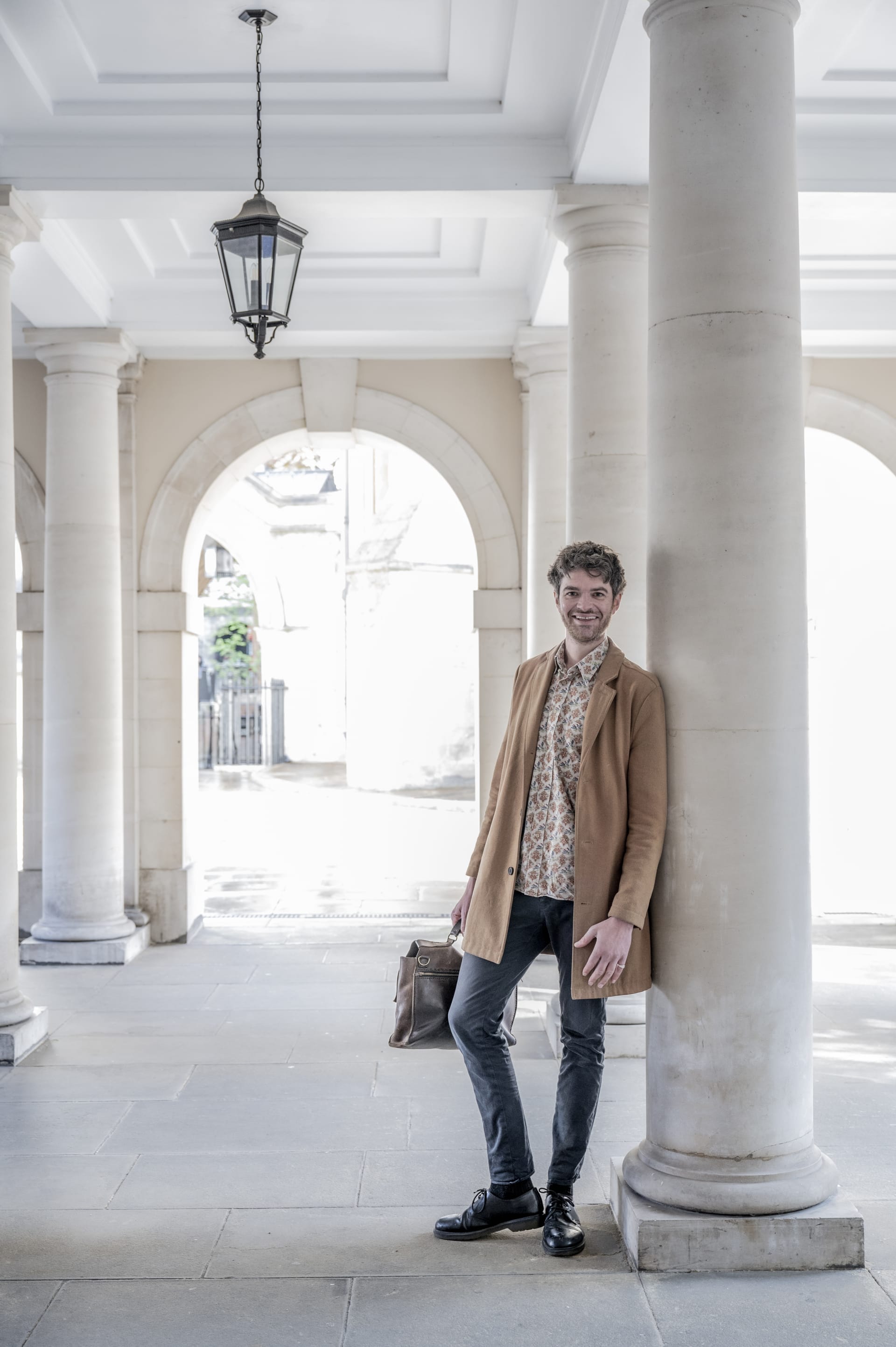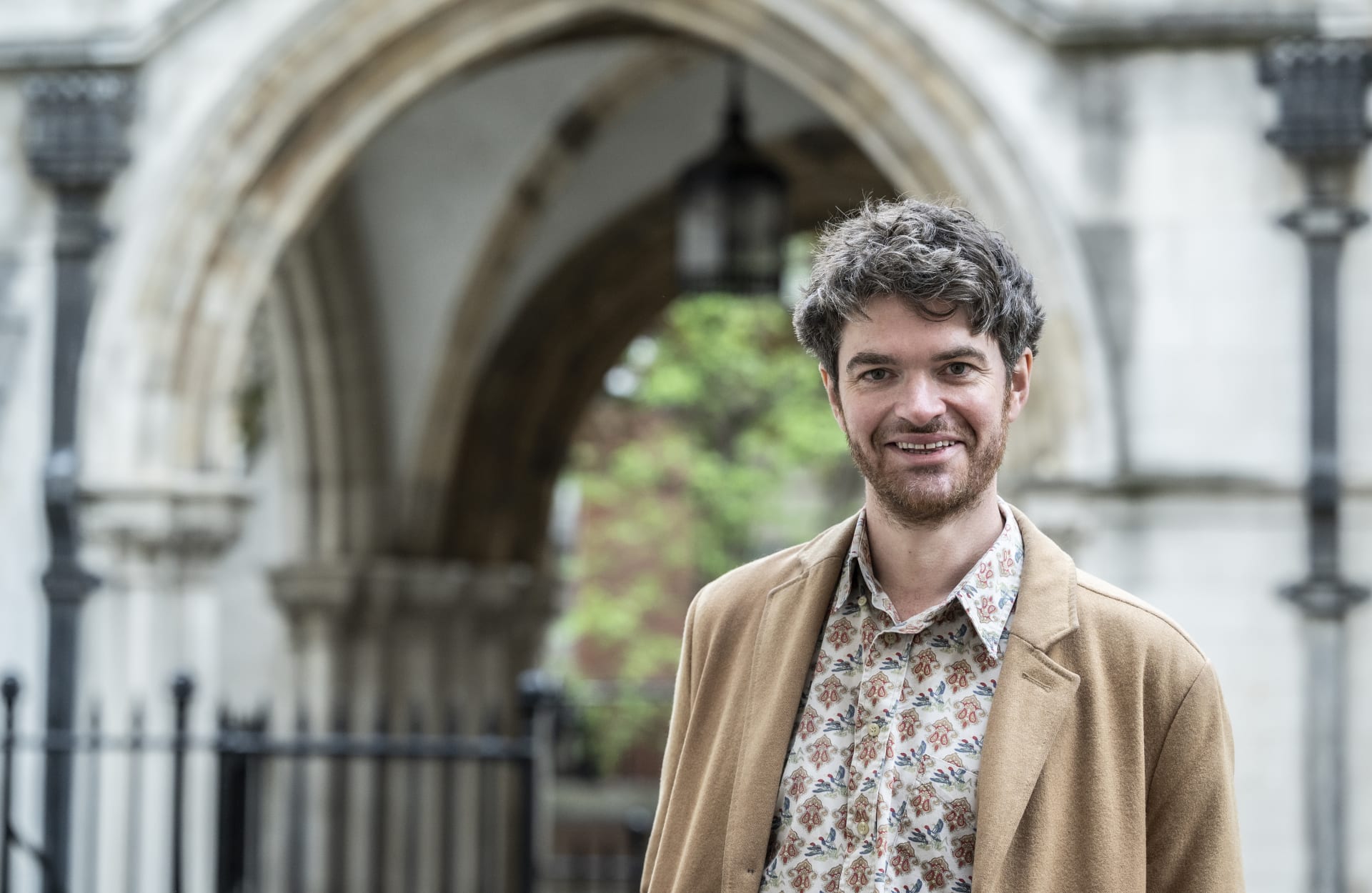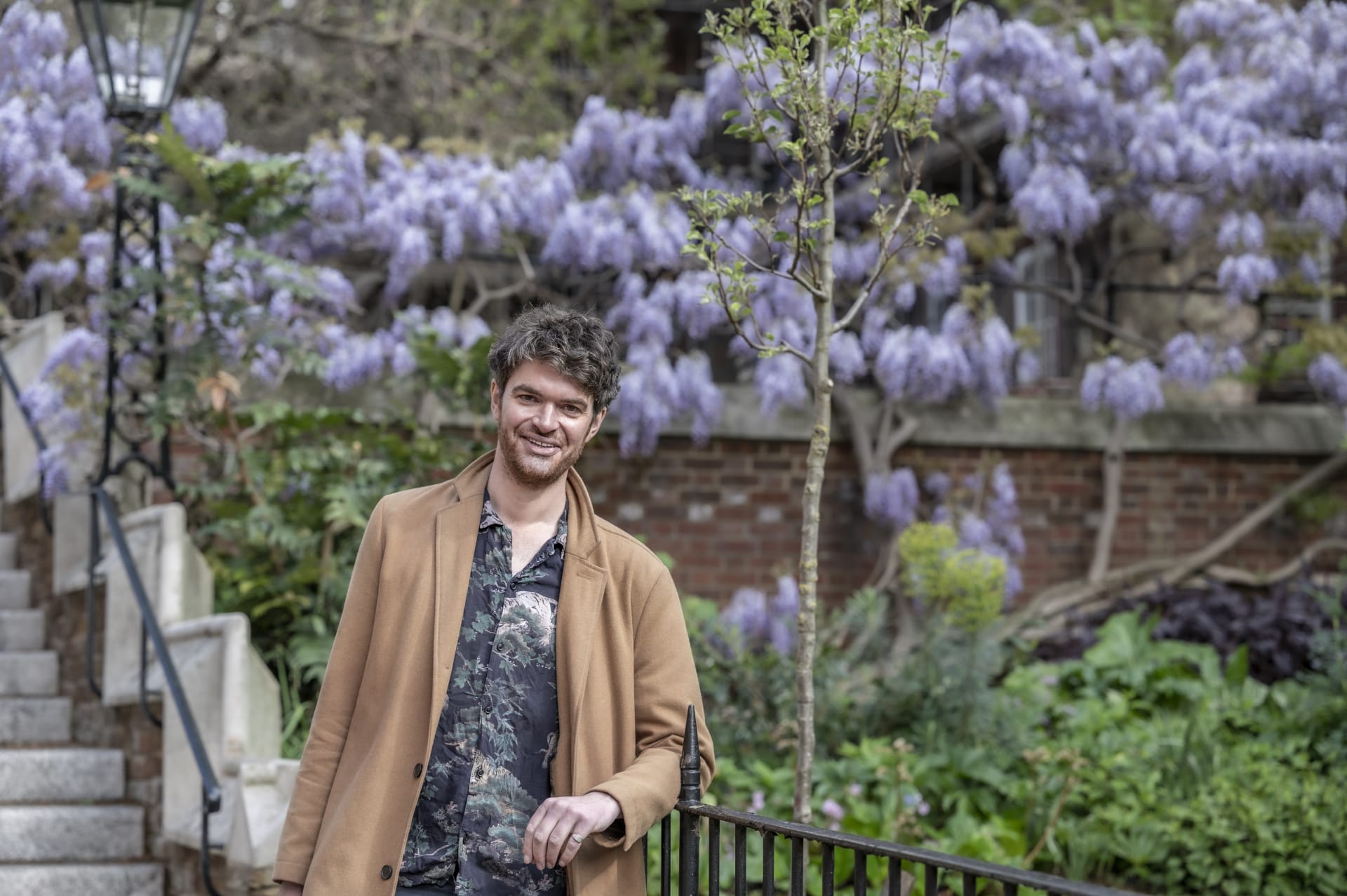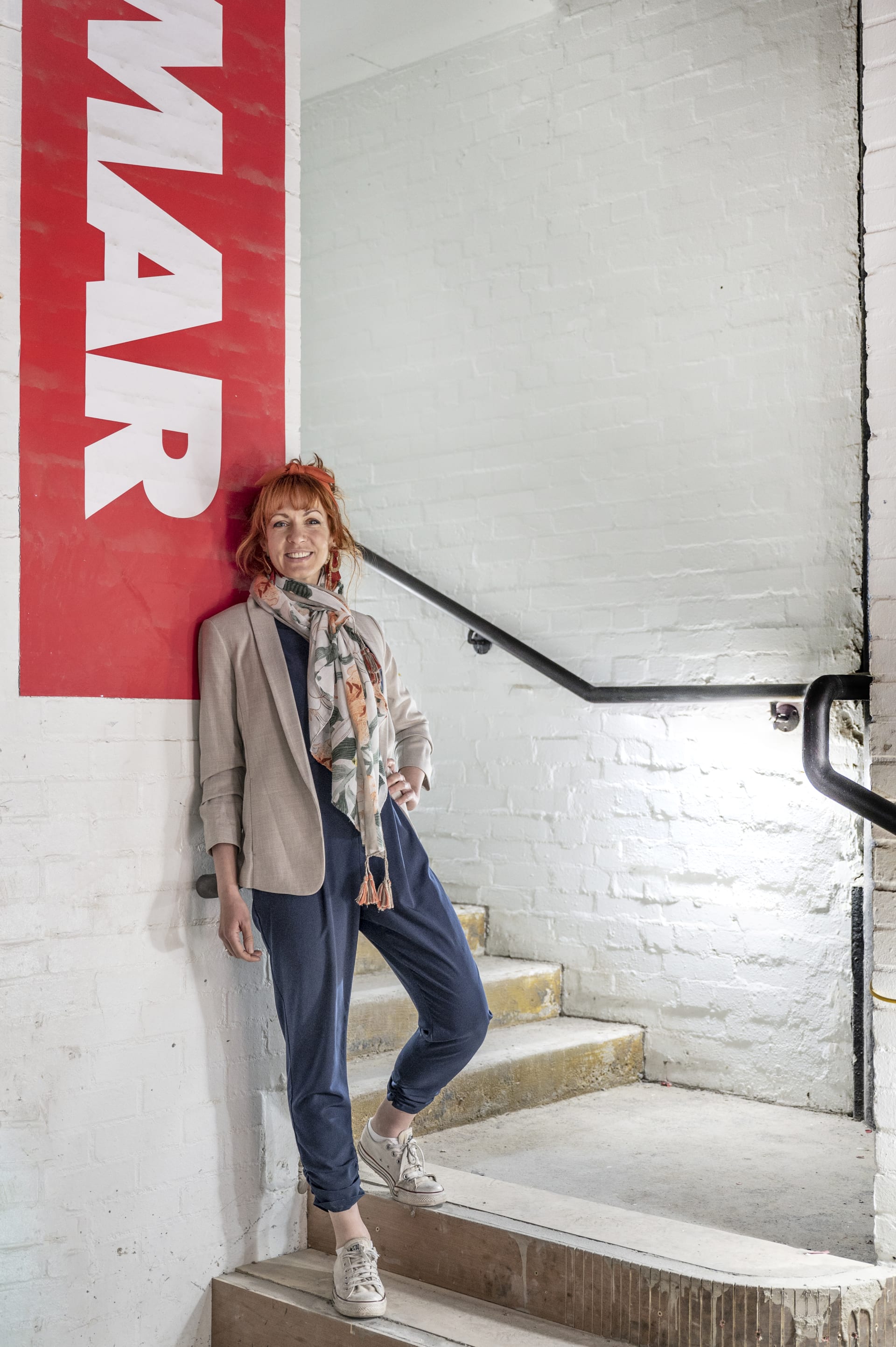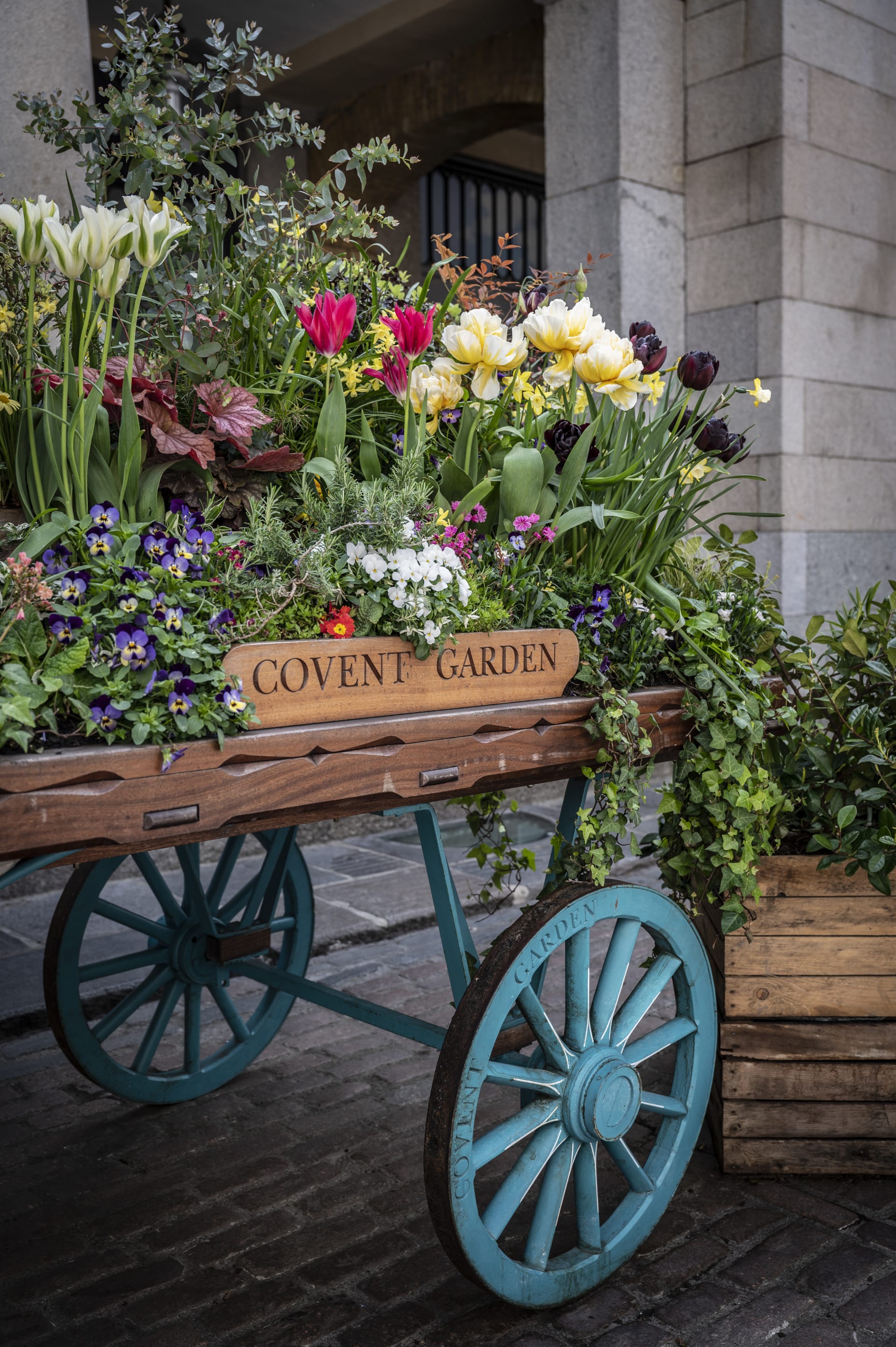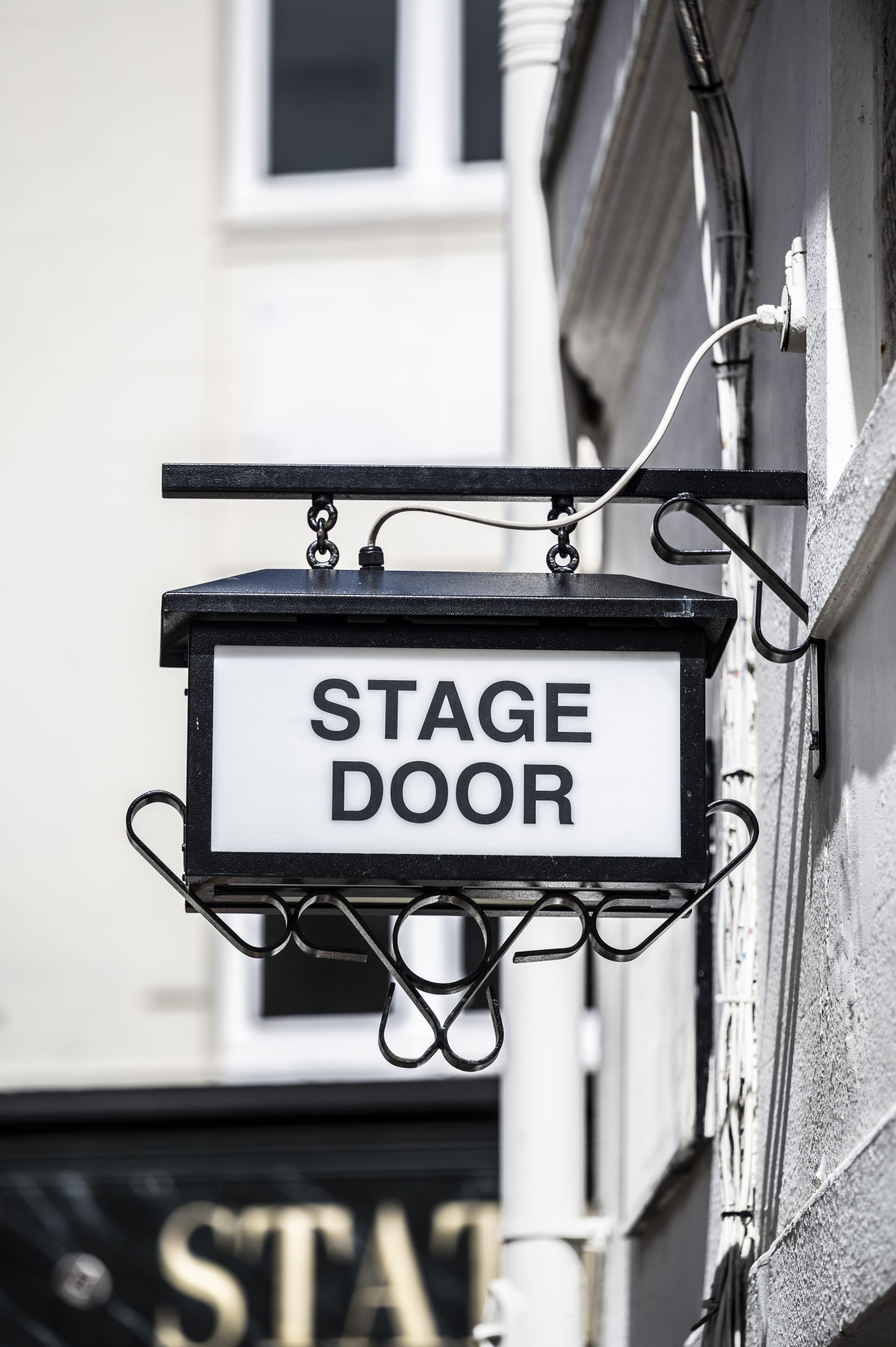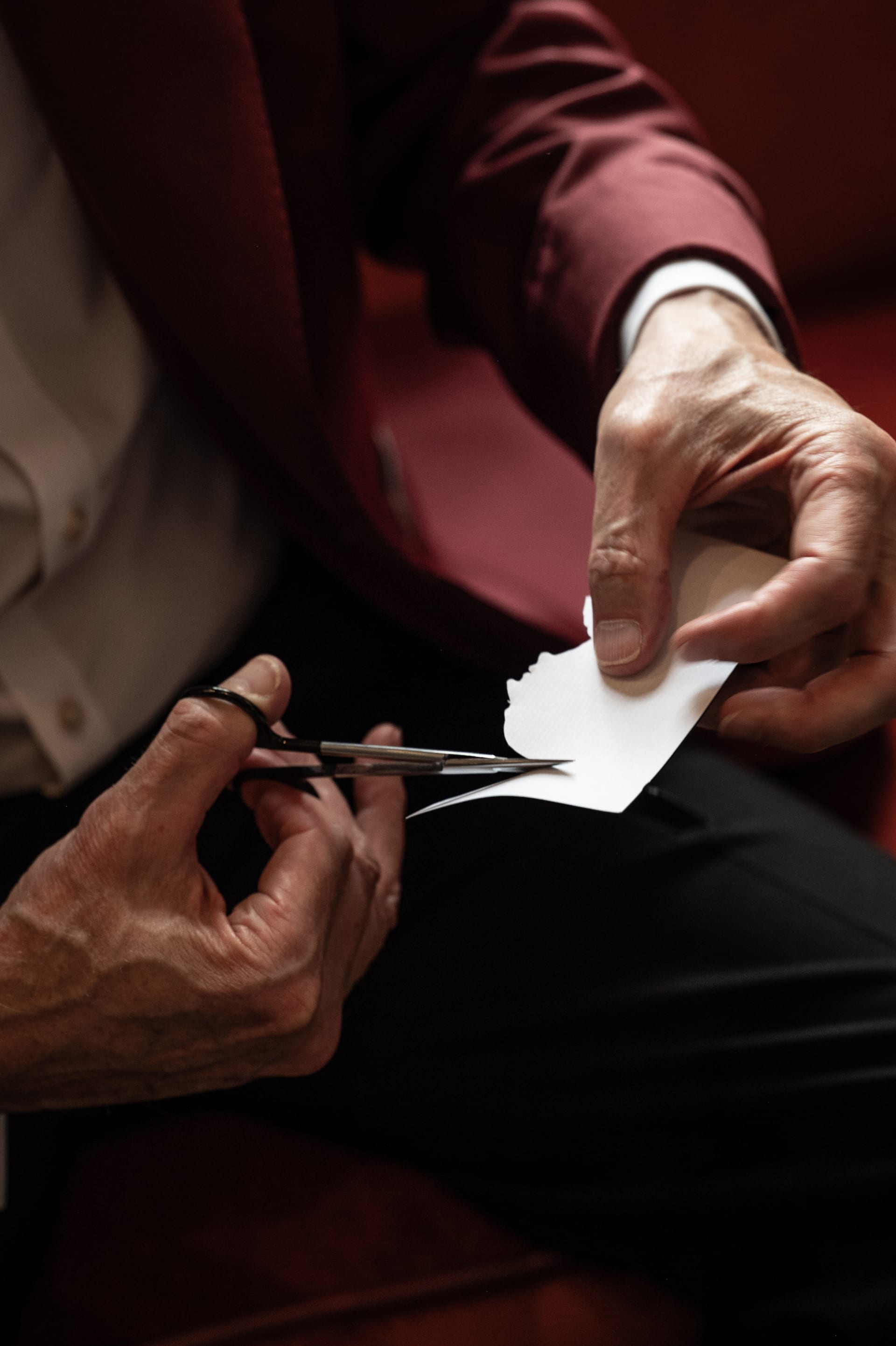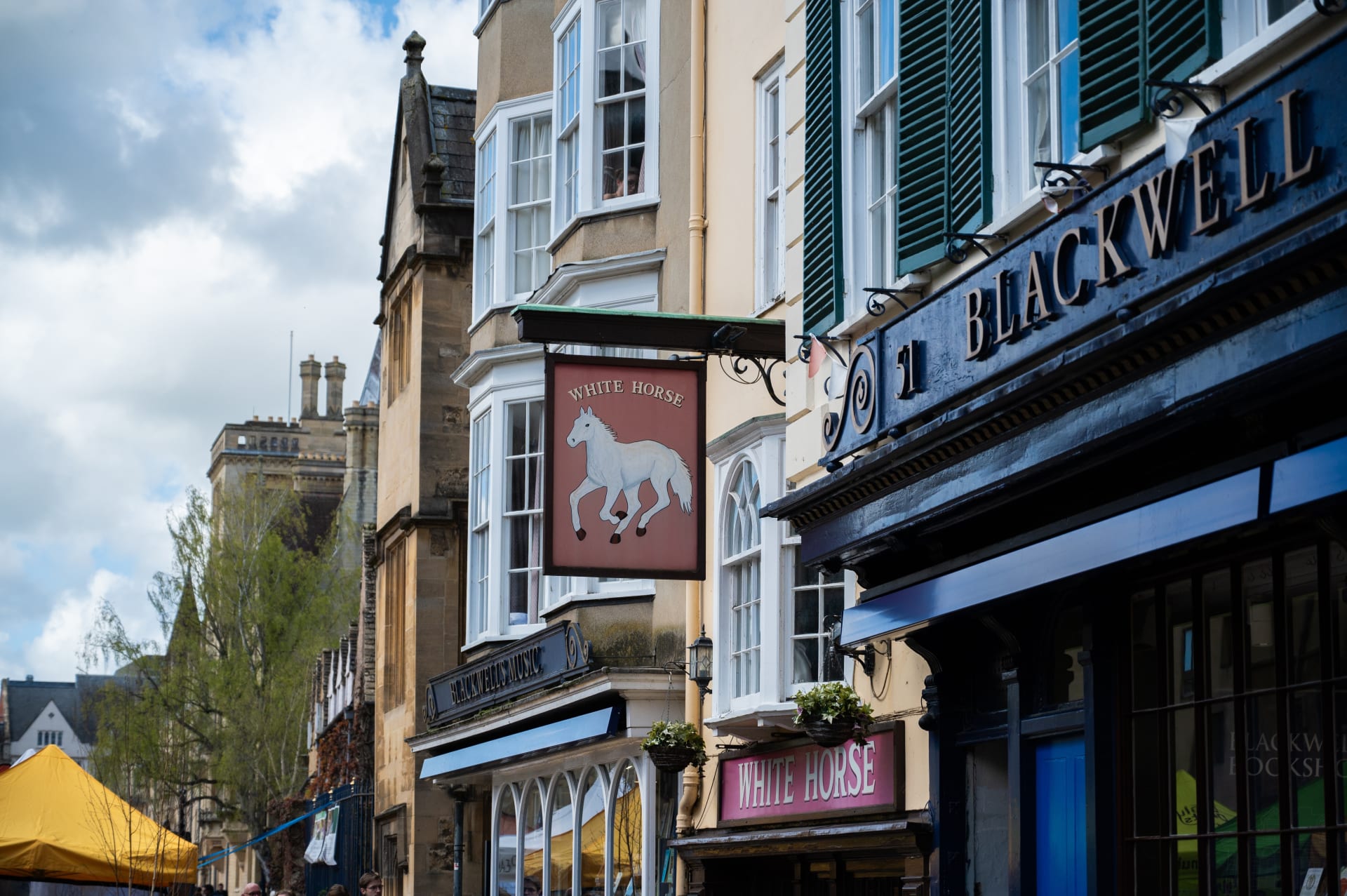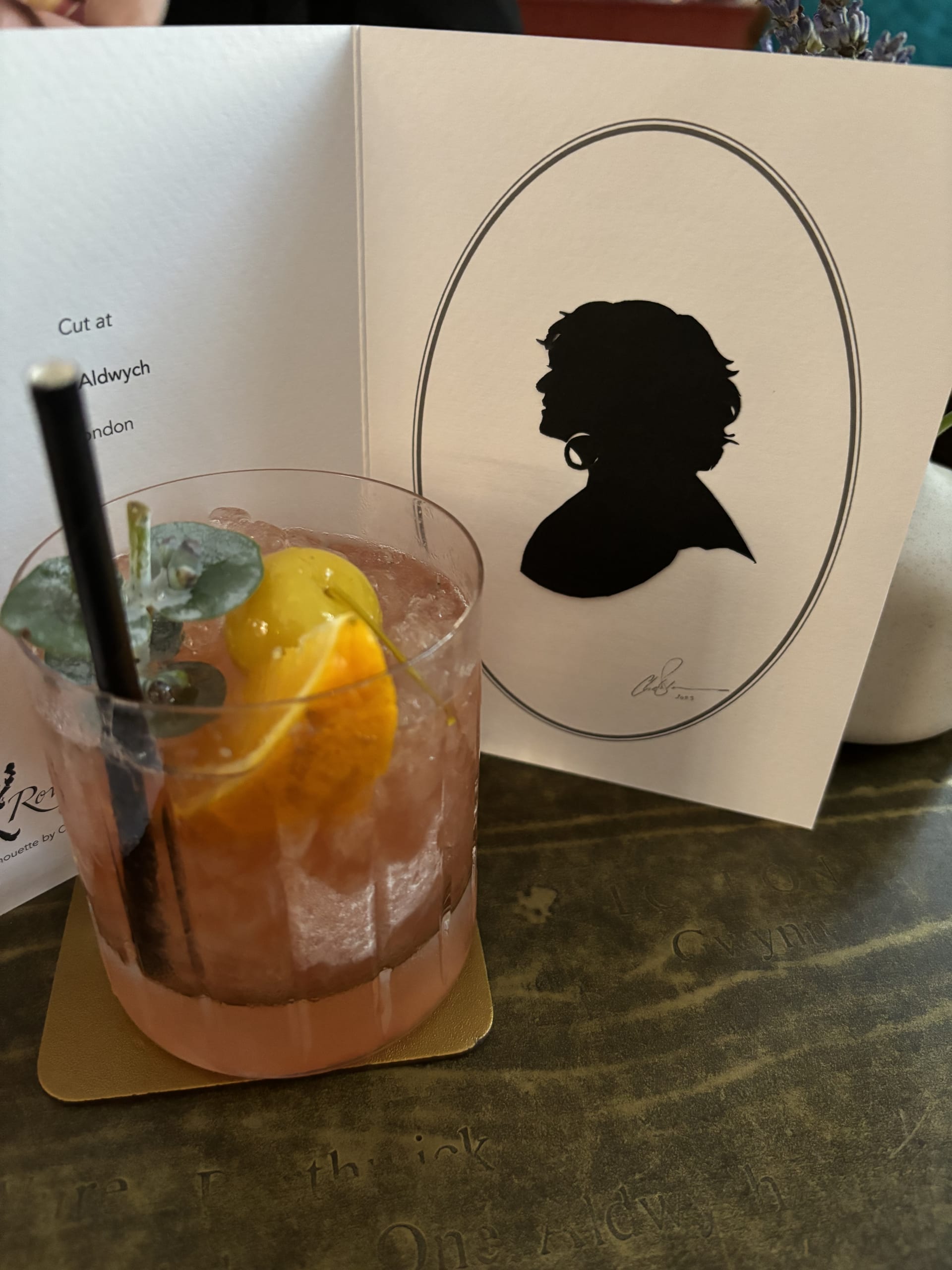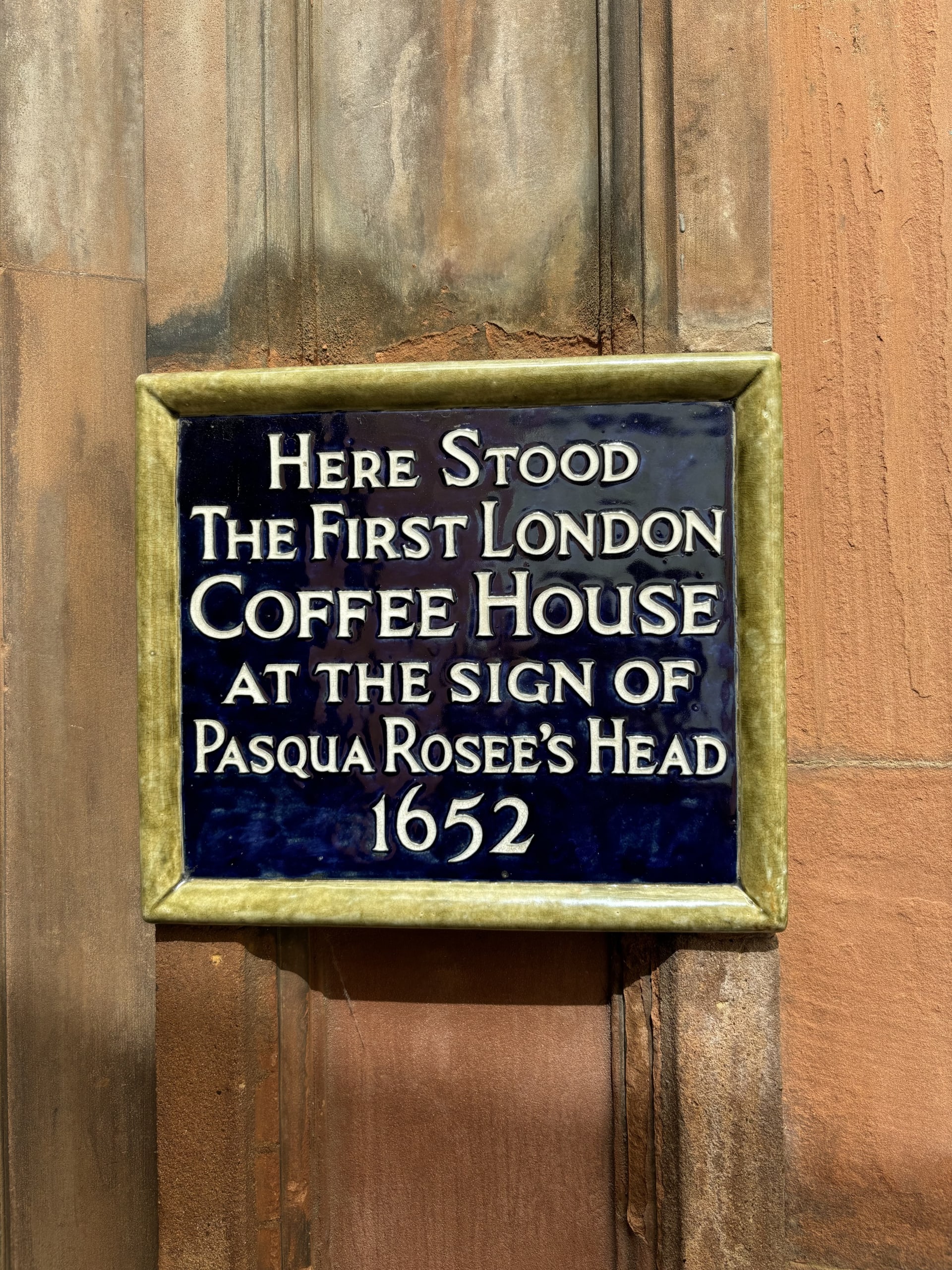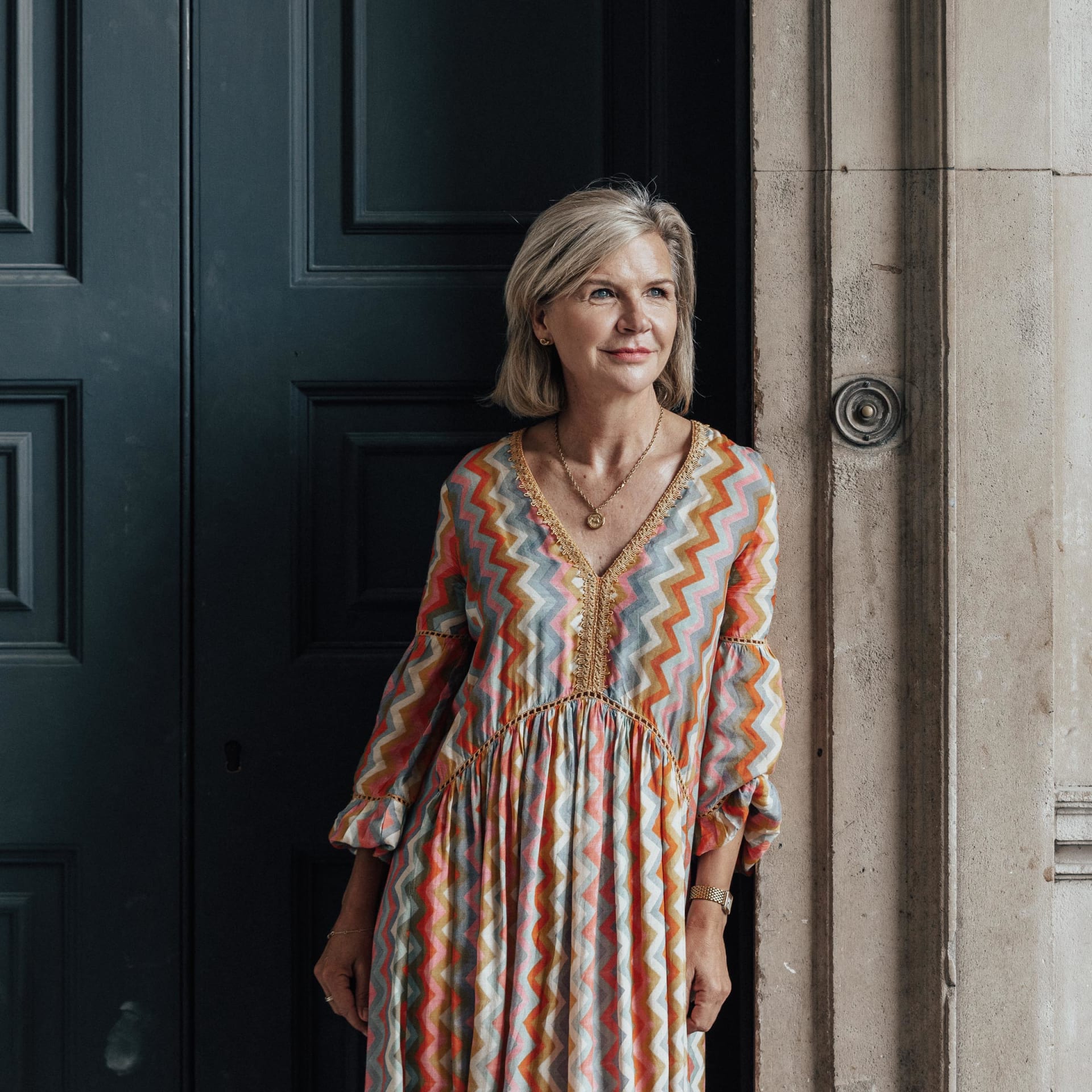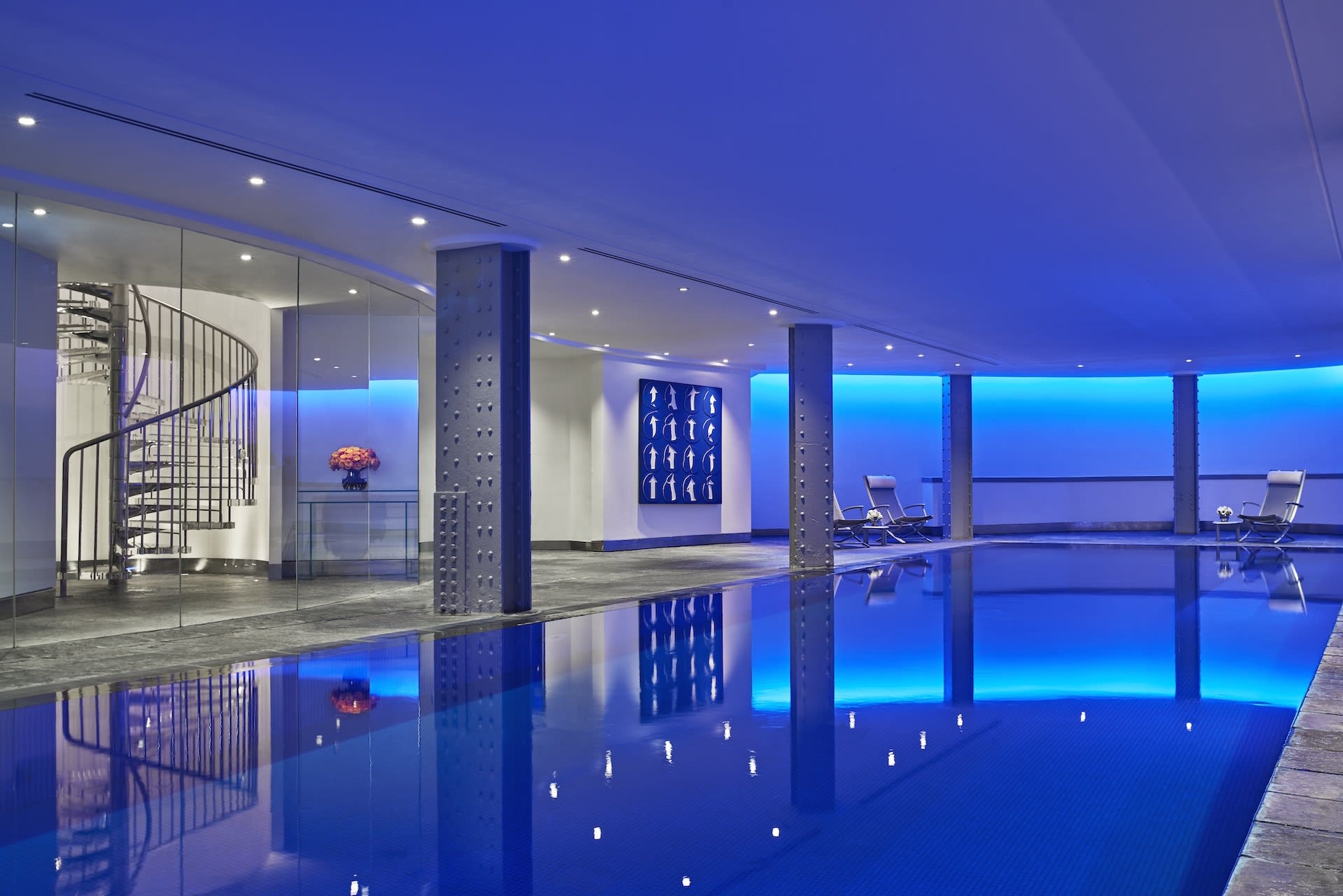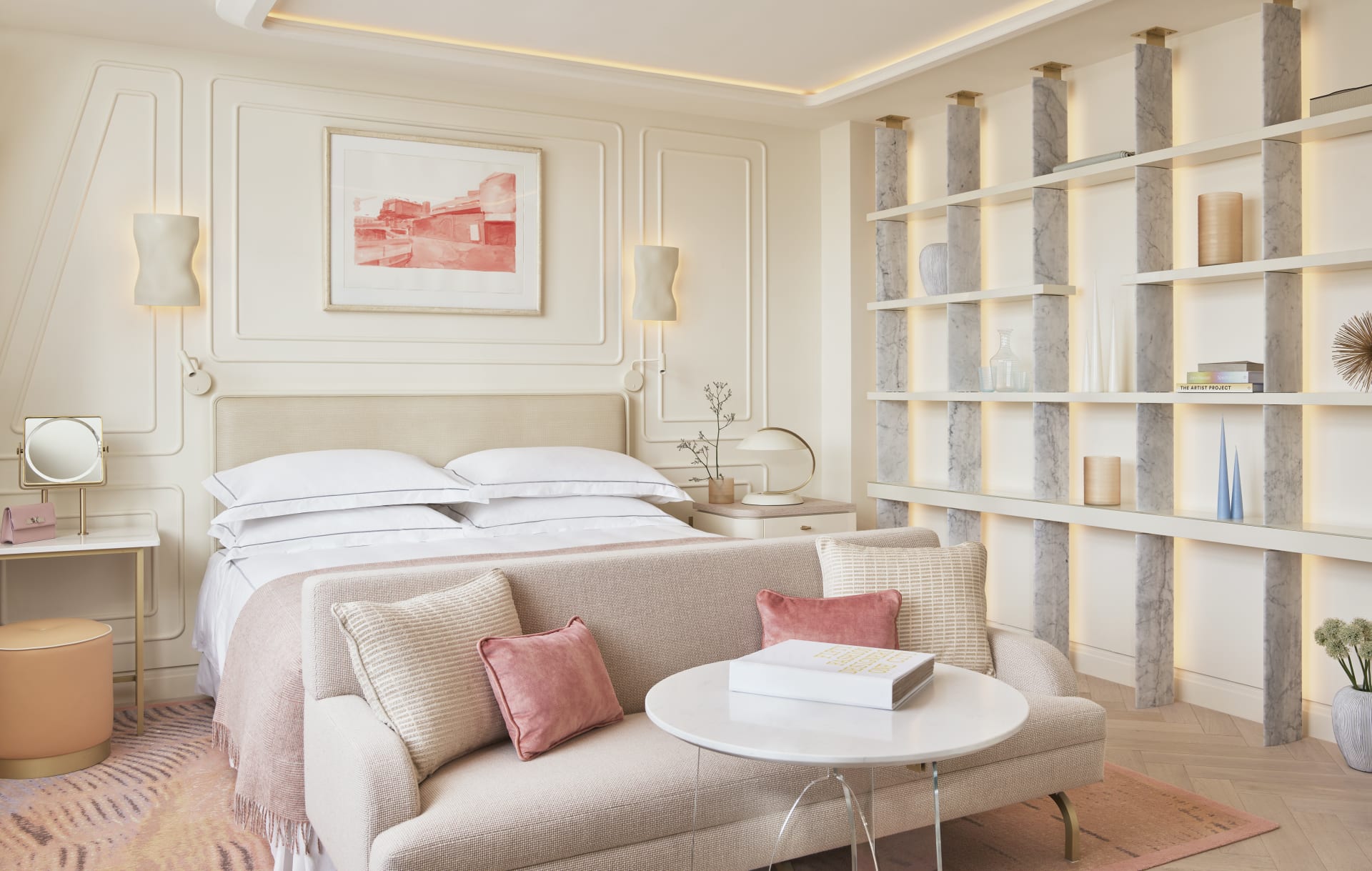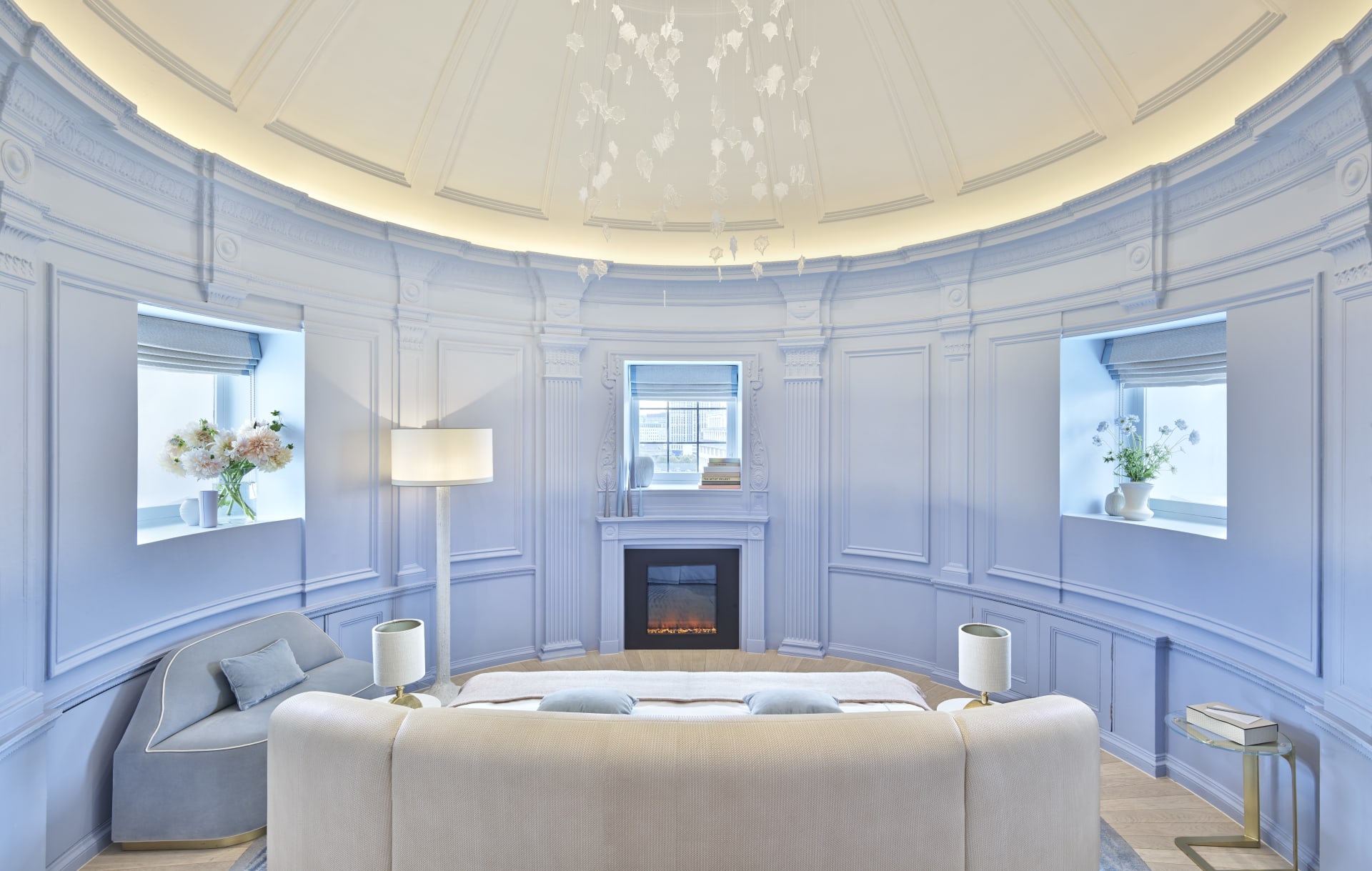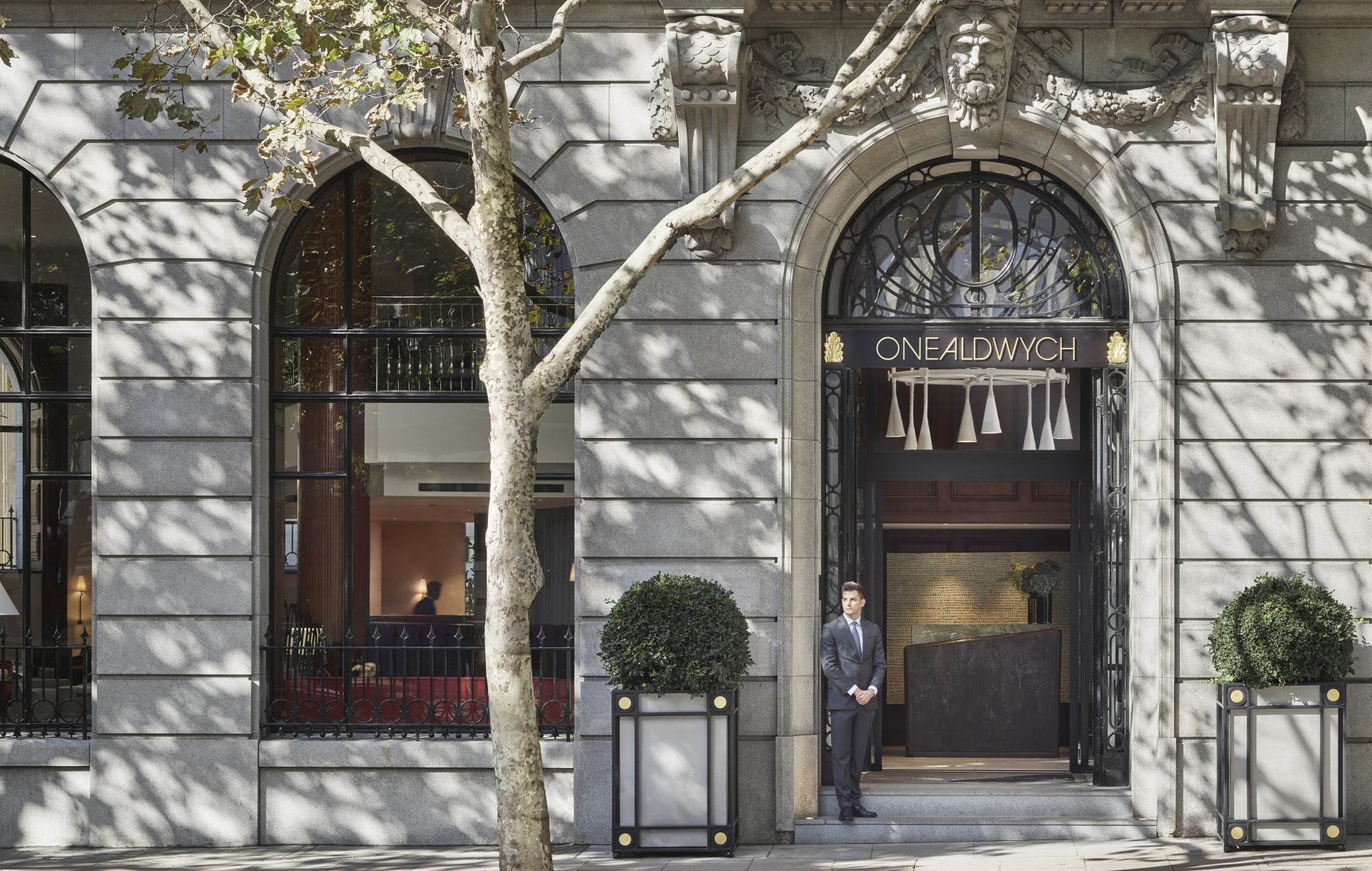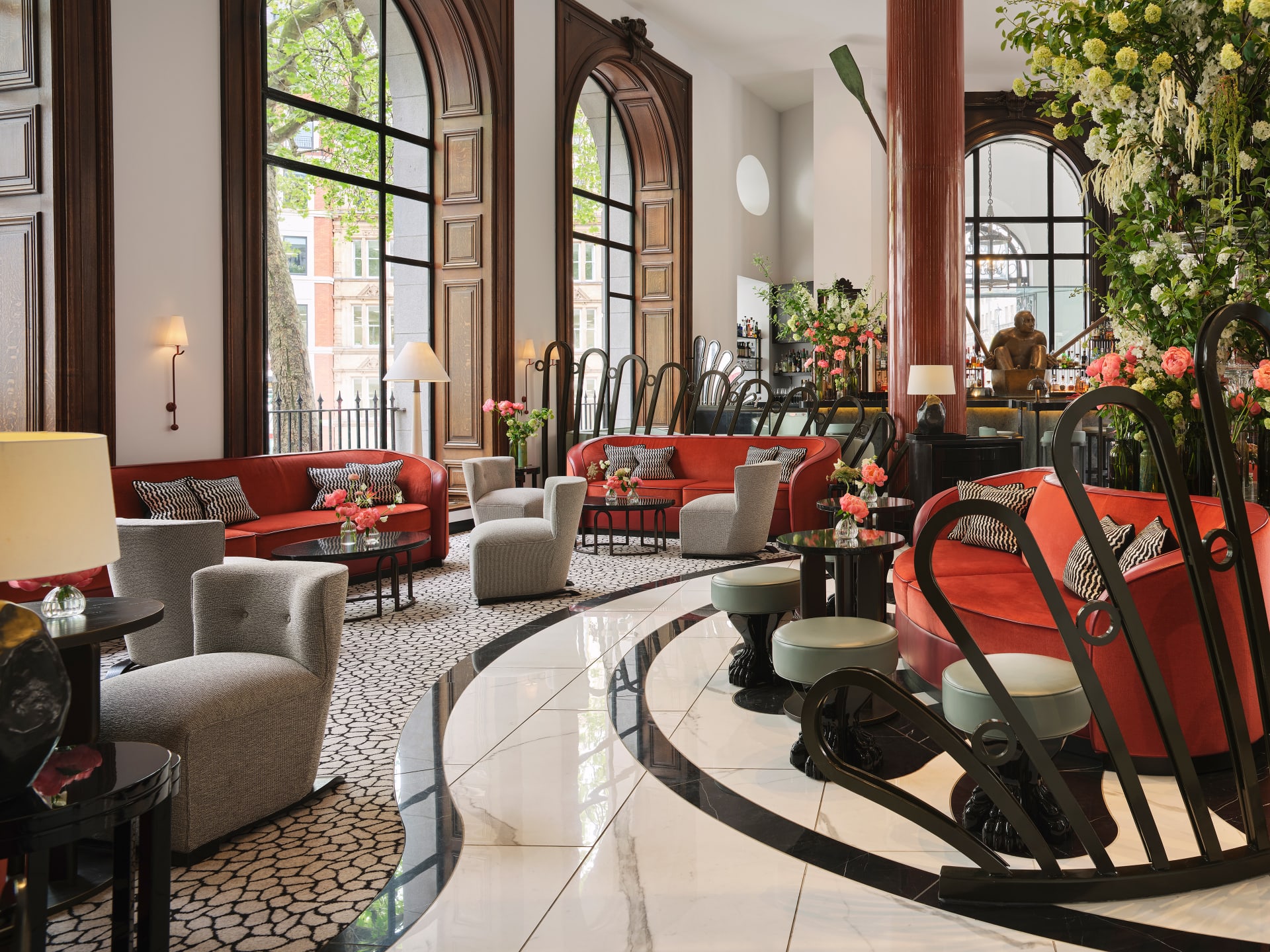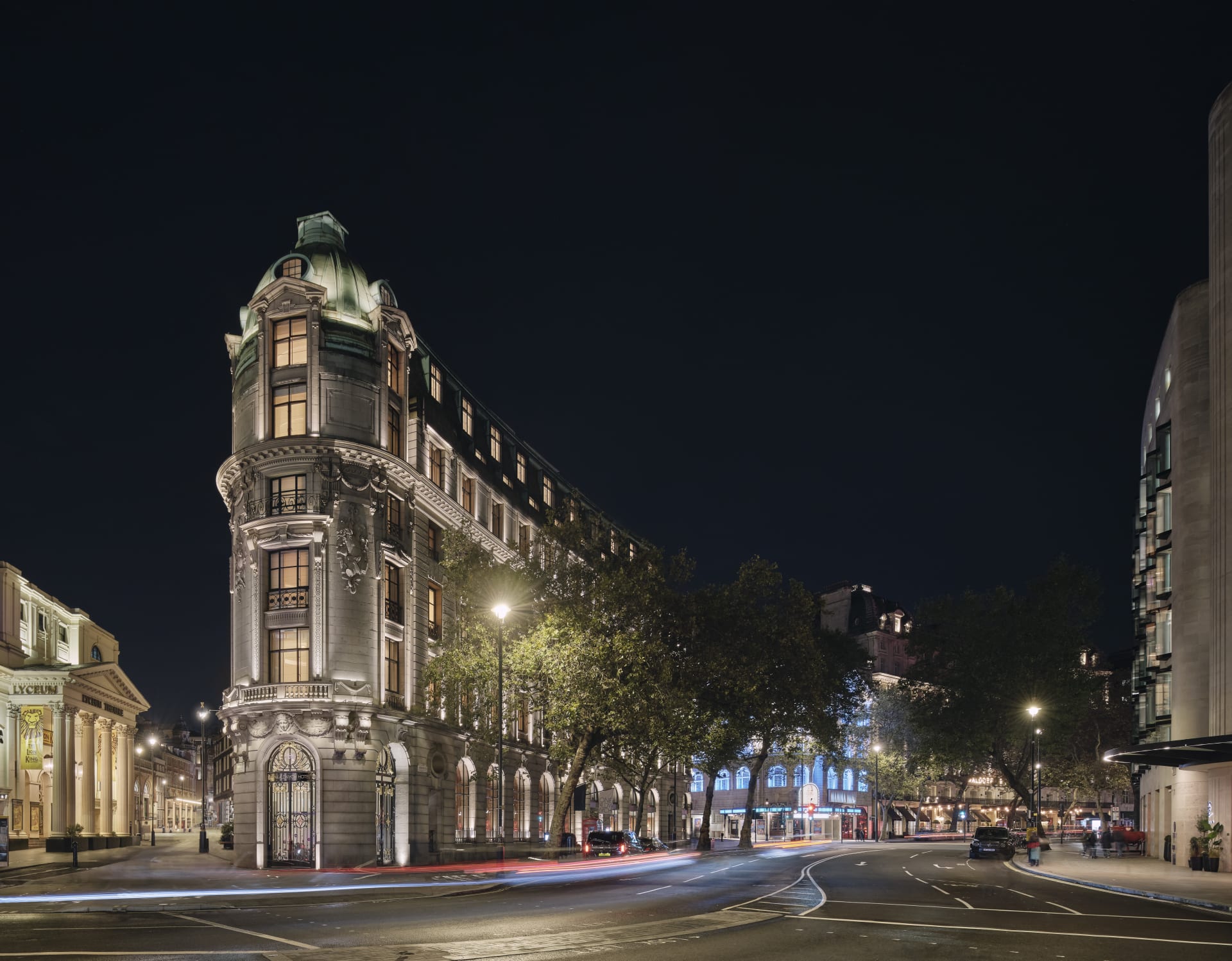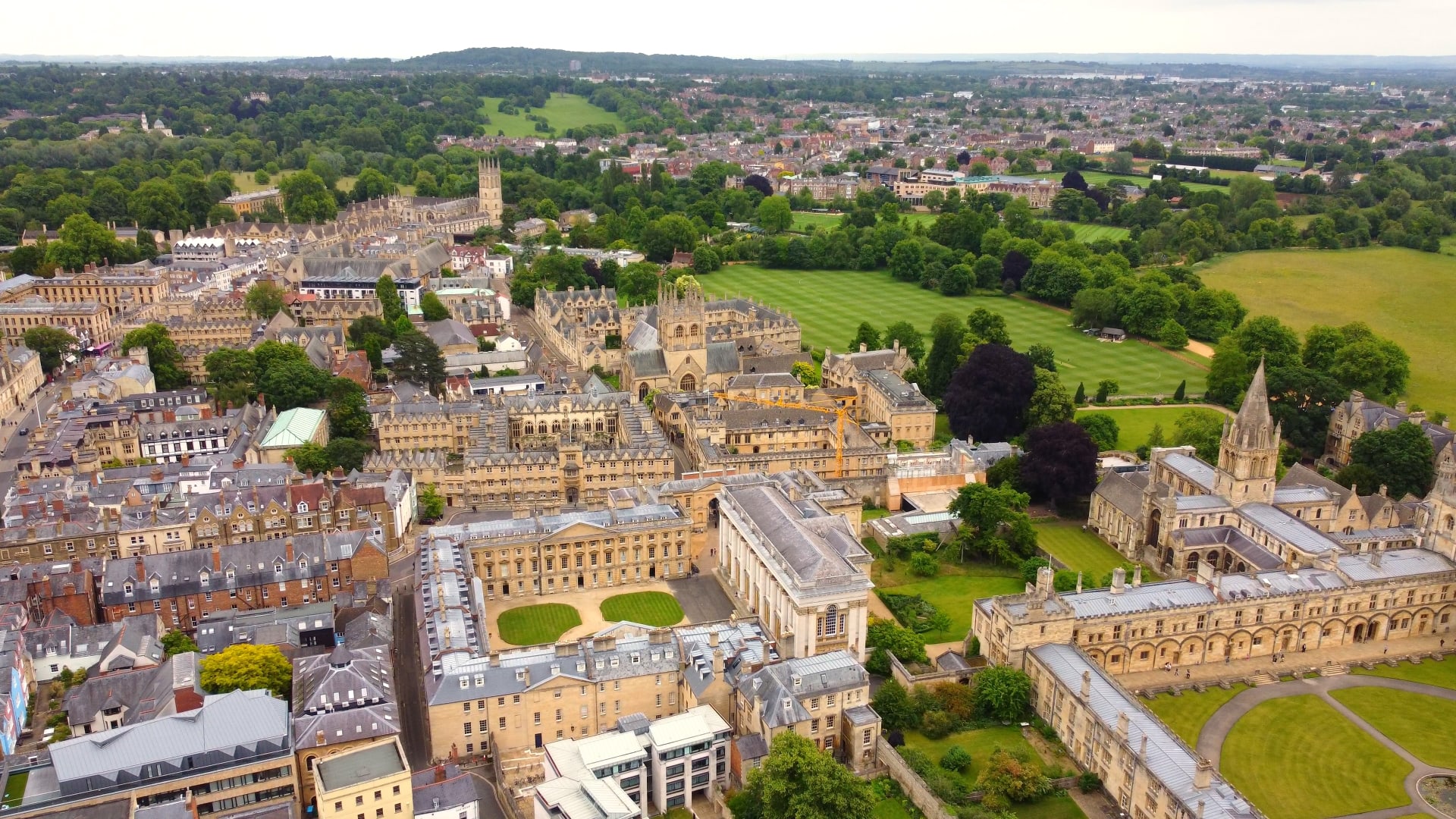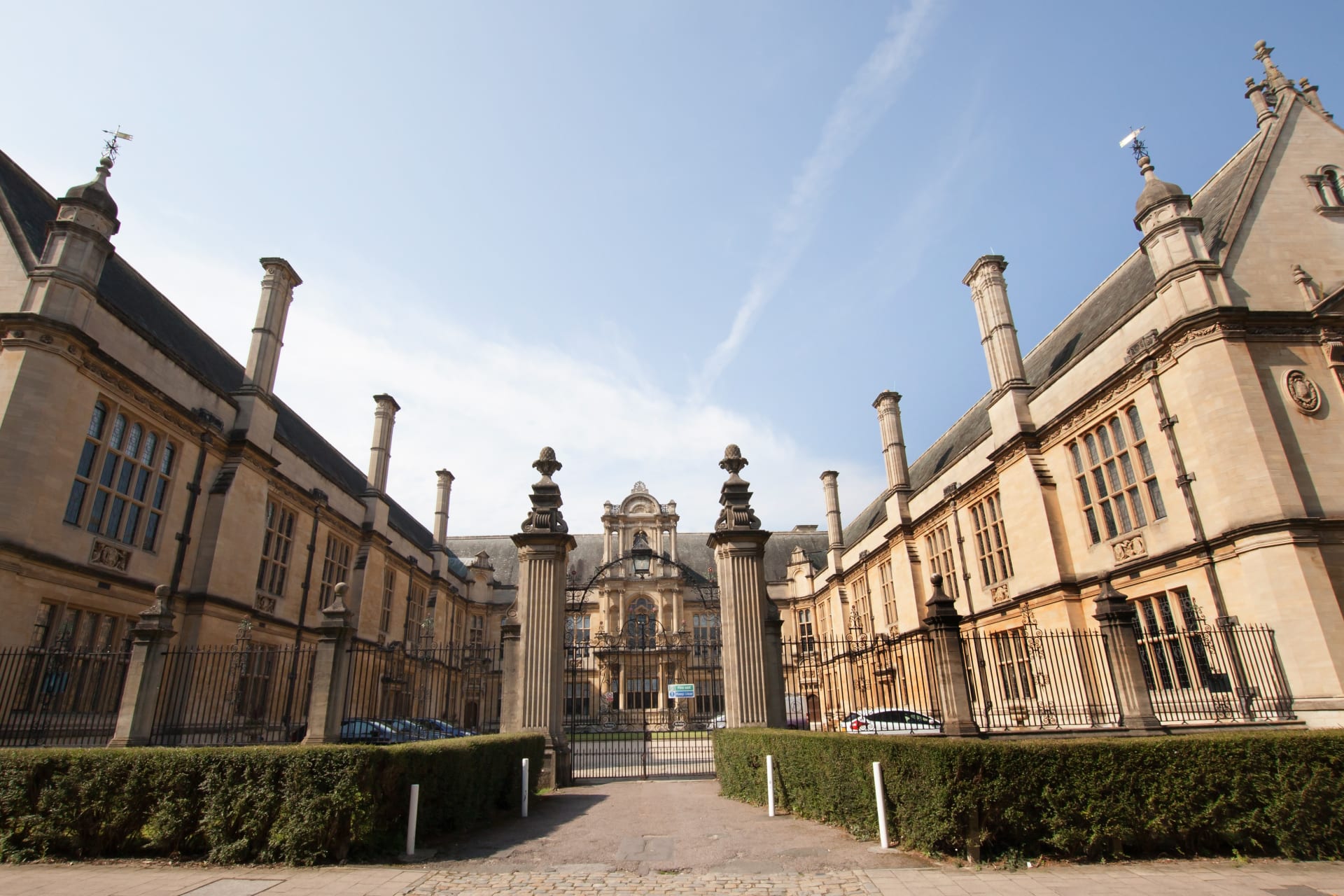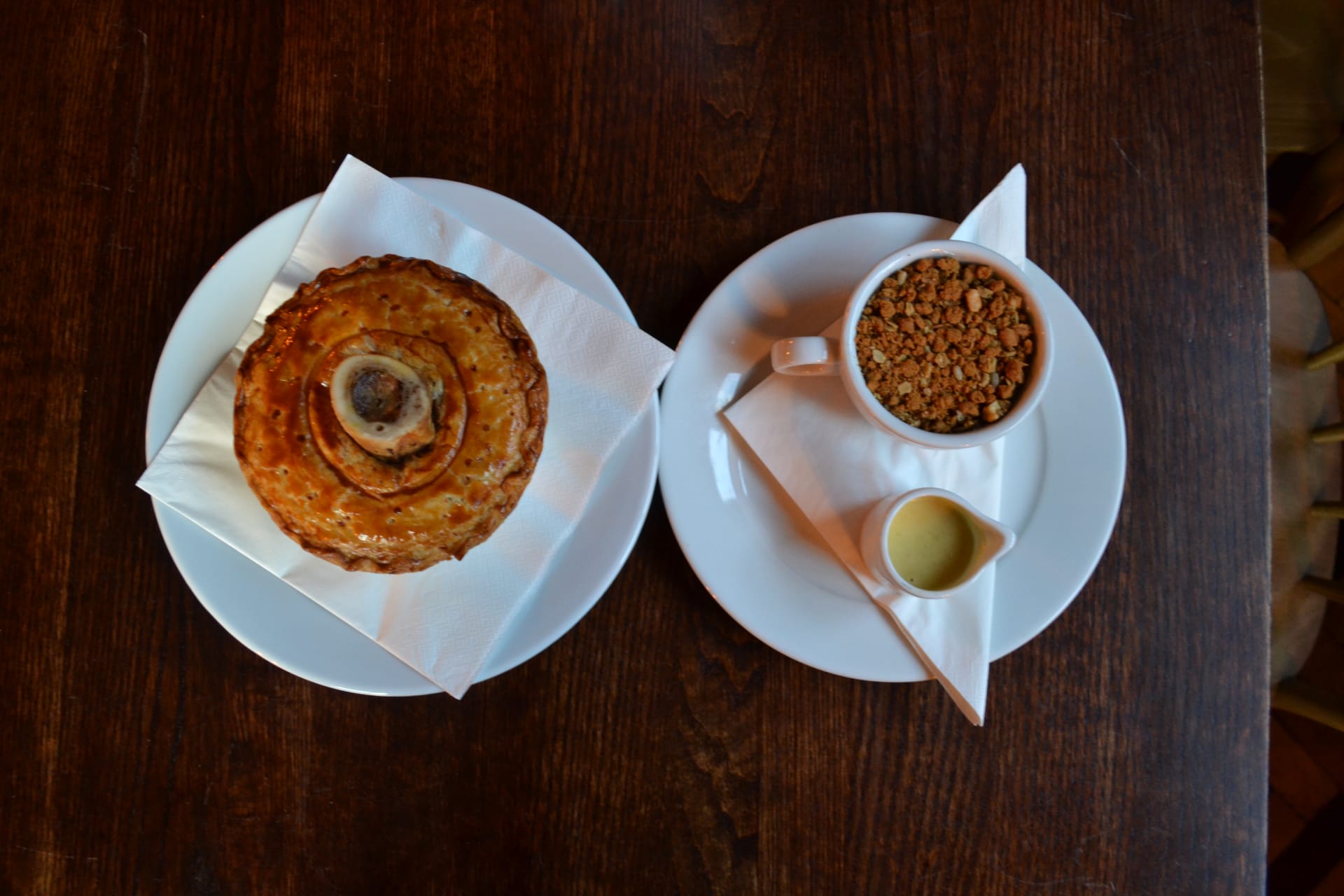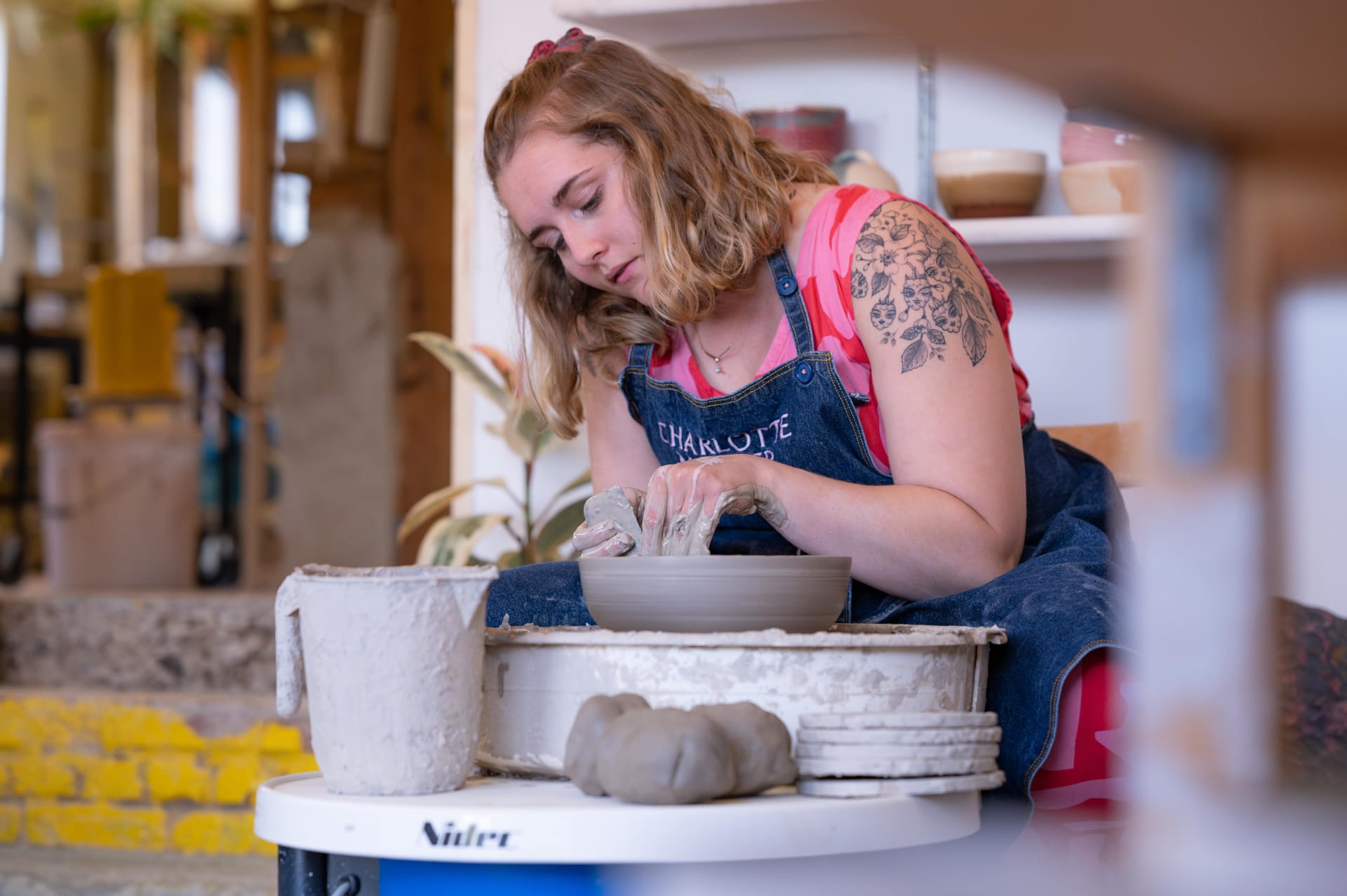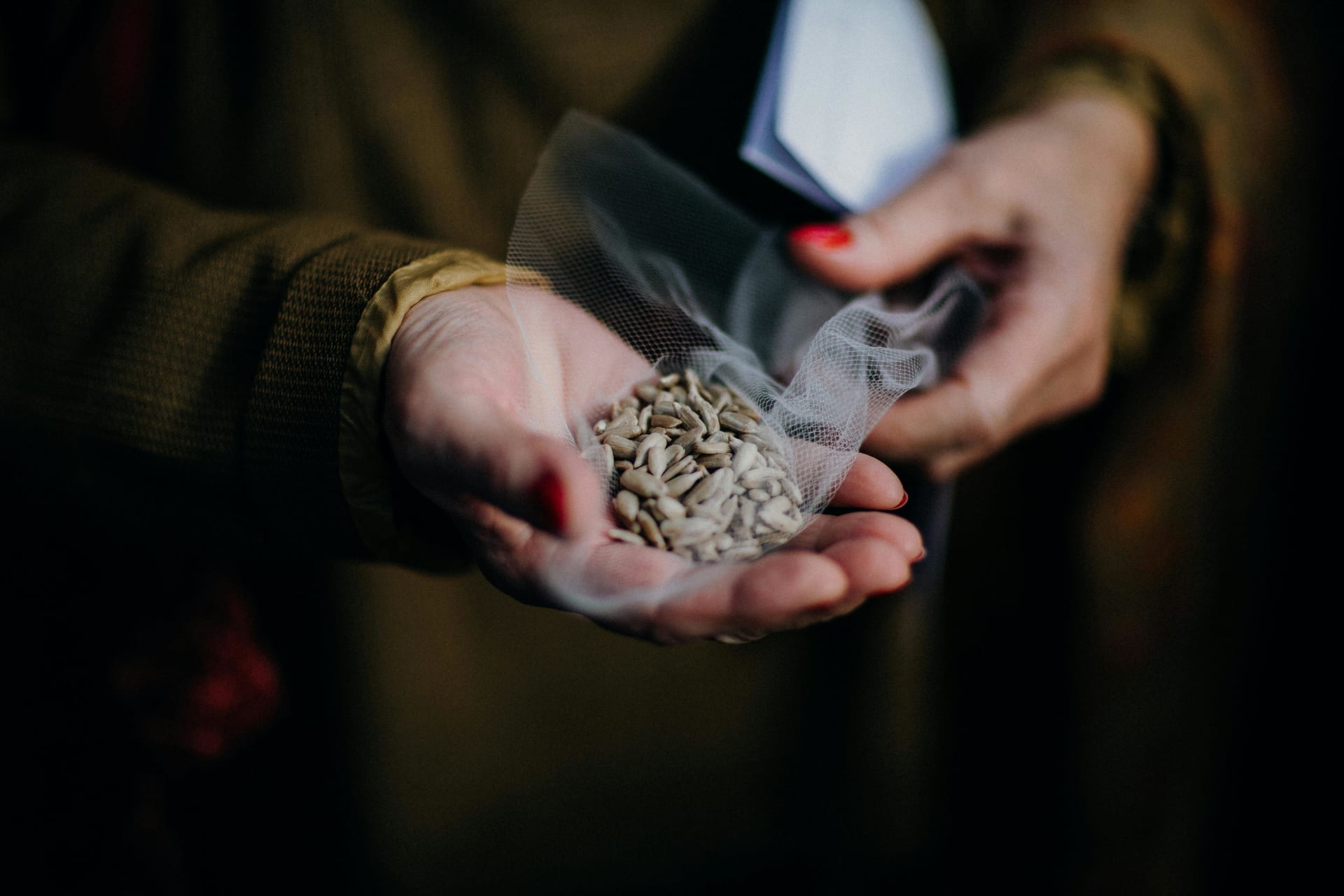Earlier this summer, I was invited to stay at One Aldwych in London to experience not just one of the capital’s most talked-about privately owned five-star hotels, but to meet The Curators, a hand-picked group of experts in their respective creative fields.
Theatre’s Silvia Melchior, Director of Development at the nearby Donmar Warehouse, scored us tickets for the last matinee performance of Benedict Andrews’ production of The Cherry Orchard with Nina Hoss and Adeel Akthar (utterly mesmerising). Renowned curator Victoria Broakes, who was responsible for the David Bowie exhibition at the V&A in 2013 (still the most visited in the museum’s history), was on hand to take guests on a tour around the legendary sites of London’s pop scene. There’s silhouettist, Charles Burns, who can share the history of the art form – and may just whip a pair of surgical scissors out from his pocket to snip your own silhouette on a piece of black card. A regular guest at stylish parties, Charles worked with Queen Elizabeth three times and has also ‘cut’ for HM The King and Queen Camilla.
Finally, there is Dr Matthew Green, the best-selling historian. We joined Matthew on a tour of the City of London to learn about the history of two staples of any journo’s diet: coffee and wine. His role as Curator at One Aldwych is to offer interested guests an experience that goes beyond the standard open top bus tour. It’s not the usual academic side hustle for an Oxford PhD graduate, so I was keen to learn more about what lead him to this and especially what he could tell me about Oxford’s own history – especially after the morning’s tour brought into question Oxford’s claim to have housed Britain’s first ever coffee shop…
Matthew, before we discuss anything else, exactly what are your grounds for disputing Oxford’s Queen’s Lane as the location of Britain’s first coffee house?
Most people will say that the first ever coffee house was in Oxford. I have serious doubts about this, because if you go and look at what the evidence it is from a late Victorian manuscript which happens to be writing about coffee houses, and someone scribbles in the margin ‘around 1650’. It’s a later hand, and it’s saying ‘around 1650’ as shorthand for ‘at some point in the 17th century’. I think the first coffee house was in fact in St Michael's Alley, Cornhill in the City of London where we know for a fact that one was opened in 1652. We know who opened it; it was an eccentric Greek entrepreneur called Pasqua Rosée. We have reports and eyewitness accounts of people visiting the shack, which I call a shack not a house because it was more like the kind of thing you find in Glastonbury, like a stall.
So, we have empirical evidence pinpointing the exact time and place. For me, it just makes much more sense that it would have been there, rather than in Queens Lane in Oxford, because there was no real mercantile community in Oxford; most of the people that would have gone to the Queens Lane Coffee House would have been more of an academic clientele; undergraduates and scholars, maybe some natural philosophers. I don't think there would have been quite enough demand for it to be there.
And, I don't think people would have had the entrepreneurial gumption to do it there either, whereas this little alleyway I'm talking about in London, right next to the Royal Exchange, would have been full of people working in the city – stockbrokers, insurance brokers, bankers as well as, you know, the tradesmen, the fishmongers and the ventriloquists and beekeepers and more.
I can't say for sure that I'm definitely right, but then again, I don't want to ruin the fun of the tourists walking past that sign saying this was the first ever coffee house and it was in Oxford.
When you were in Oxford did you used to go there, thinking it was the first one?
Well, it was sort of a dual discovery, because I didn't really discover my passion for coffee houses and how this disgustingly bitter black liquid transformed society and change the world, until I was in my final year. It would have been around 2004, which was actually around the time when lots of Starbucks and Costa coffees were proliferating; suddenly they were everywhere. There was an affinity there between what I was reading about people having these incredible political and philosophical chats in the coffee houses back in the day, and the new ones appearing.
I did read that the first one had been in Oxford. I went to the Queens Lane Coffee House, and it's quite underwhelming. The one I did go to regularly was the Grand Cafe opposite, which is very beautiful. That would be a real treat; if I had done well in a piece of work, I'd go into the Grand Cafe, get one of those cafetieres and just bask in the splendour.
And do you have any other favourite haunts in Oxford?
Yes, I really loved the Turf Tavern – I think everybody does. And also the little pub next to Blackwell's [The White Horse]. I actually used to spend a lot of time in the Caffé Nero that was in Blackwell's. It was before mobile phones had invaded our minds, so quite a lot of undergraduates would go to drink coffee after coffee after coffee, and then just spill out ideas into a notebook.
One thing I always tell people when they visit Oxford is to go and see some of the quads. I think the oldest, by some stretch, is Merton College. I am interested in the idea of how the architecture and built environment of Oxford reflected the way people thought and interacted: the intellectual climate of the time. So in the coffee houses, notoriously, you have one long wooden table, and everyone would talk to everyone. Each new customer would shout out: ‘What news have you?’ The whole layout was maximised to get people interacting. But, if you go further back to the times the quads were built, they also relate to how people thought and inquired intellectually in the Middle Ages.
The most important thing about a quad, still to this day, is you can't walk across one; you have to go around it. To me, that reflects the intellectual culture, which was all about reinforcing and sanctifying the authority of a quite a small number of texts. If you went to a tutorial back then you weren't really allowed to question anything. You would have the text read to you and you were allowed to come up with objections and then it would be explained to you why all your objections were wrong and why the text was right.
It was a process of intellectual occlusion and, for me, these quads that you had to walk around, were a kind of hoof-harrowed path of authority. No geographic shortcuts, no trying to puzzle things out and make mental connections or mental shortcuts. They wanted you just keep going round and round, rotting in the path of sanctified knowledge.
But more than that, or perhaps because of it, the quads are just extremely magical, beguiling places that sort of hot-wire you back to a much older Oxford which was in some ways different, but in other ways not. We're arriving at a post-truth society now, where people can see things can't possibly be true, but they go on believing them anyway (like Orwellian double think) and that was actually very close to the medieval scholasticism.
So, there we go, quads and coffee houses
It makes Oxford seem very vivid. Do you think you'll write on the city at any point?
Yes, I do. My next book is a queer history of Britain from the Stone Age to the present day. So it's a bit like Shadowlands. It's like a forgotten history, uncovering all these characters that have been written out or suppressed over the centuries, and a lot of them lived in Oxford.
You've taken a really interesting career path, and I wonder if that was by design?
Sort of, I've always been as interested in writing as I am about researching history. I really like writing in an evocative style and that put me off going into academia. I'm very into literary style, and I read as much fiction as non-fiction. I like to use unusual and probably at times unnecessarily long words, evoking atmosphere and telling stories in an emotional way, with emotional resonance. In academic writing you have to write in [a certain] vernacular and if you try to veer into telling a story or doing anything emotive, it will get crossed out immediately. Ditto, generating atmosphere – you can't, it's all about argument and evidence. I wanted to write books that would be considered literary non-fiction, rather than well, argued pieces of logic.
I was obsessed with the history of London, so I started doing freelance articles for The Guardian, the FT and the Telegraph and I launched my tour company, unrealcityaudio.co.uk. The first tour we did was the coffee house tour. It was a big success, so we kept adding more into the repertoire and then offering people private tours on any of topic they wanted. And it grew and grew and grew.
I'm now doing tours of Amsterdam and Oxford, of queer Soho, all these other subjects. And then, to my delight, one day I got an email from Penguin, and it turned out they had an idea for a book…
And that was your first book, London, A Travel Guide Through Time? I know your latest, Shadowlands was a Times best-seller. How did all of that lead to a position as one of the Curators at One Aldwych?
There’s a trend for luxury hotels to work with expert curators and One Aldwych was looking for someone who knew history. Anyone who stays there can book me to give a tour, whether that be one of our off-the-peg ones, or something totally bespoke. Nothing is too obscure, and no part of London is too recherché.
What do you enjoy most about your work there?
Well, firstly, one of the perks is I get to stay there for a set number of nights a year which is amazing. To stay somewhere with such meticulous attention to detail where they turn luxury into an artform is such a treat. There are so many quirks; I love the mellow way its decorated, it’s very calm and relaxing, and I’m a big fan of the beautiful freshwater heated pool in the basement. I love meeting the guests, who come from all over the world. Everyone’s got a slightly different perspective on London and a different agenda of what they want to see but it’s fun to be in contact with these accomplished and congenial people.
It would also be impossible to talk about One Aldwych without mentioning one of its significant USPs, which is the cocktail menu. I think that is what the bar is best known for – even beyond the hotel. Finally, the location. You’re minutes from Covent Garden Piazza but also Soho, Embankment, all the bars, Chinatown – you can have a full on anarchic, messy night out but then walk back to this extraordinary luxury refuge when you want the night to end.
Also, all the people are so nice – it’s not like White Lotus – people are genuinely friendly and a joy to work with. It’s unobtrusive but each detail seems like it is cherry picked, nothing has been forgotten. And the whole history of the place is very interesting to me. It's near Fleet Street, and it was the headquarters of the Morning Post where Winston Churchill himself used to sit and scribble out his copy. They’ve done such a good job with this triangular building, which is not the most capacious of spaces, but they’ve made it work as a boutique hotel. It’s filled with tasteful and arresting abstract art. It is like an oasis of luxury and tranquillity.
On that point Matthew and I are in full agreement. Also worthy of mention is Indigo, the restaurant on the mezzanine floor, overlooking the fabulous Gallery bar with its cocktail list inspired by the 350 modern artworks displayed around the building (do try the Horseradish Martini or if that doesn’t appeal I can heartily recommend the Morello Cherry Mai Tai). Overseen by chef Dominic Teague Indigo’s evening tasting menu is gluten and diary free with zero compromise on the fine dining experience and the accompanying wines are particularly well chosen to complement Dominic’s culinary wizardry.
The rooms are equally elegant and inspiring. Championing the very best in British craftsmanship and design, each perfectly hits the sweet spot where beauty meets comfort. Fresh flowers are replenished daily, the TV effortlessly streams to your device, the hairdryers are Dyson, the mini bar is included in the room rate, and the bathroom goodies will inevitably find their way into your toiletry bag on departure.
Moreover, there is a commitment to sustainability throughout which is clearly considered but never officious. It is only apparent when you look closely at the details; beehives on the roof to support London’s urban bee population, water filtration and bottling on site, the chlorine-free pool, loos which are designed to save water. The hotel adheres to the Luxury Eco Certification Standard and, in addition to the plaudits heaped upon it by guides including Michelin and Conde Naste Traveller, One Aldwych also maintains a Gold accreditation from Green Tourism Business Scheme.
For more information, room rates and booking visit onealdwych.com.

